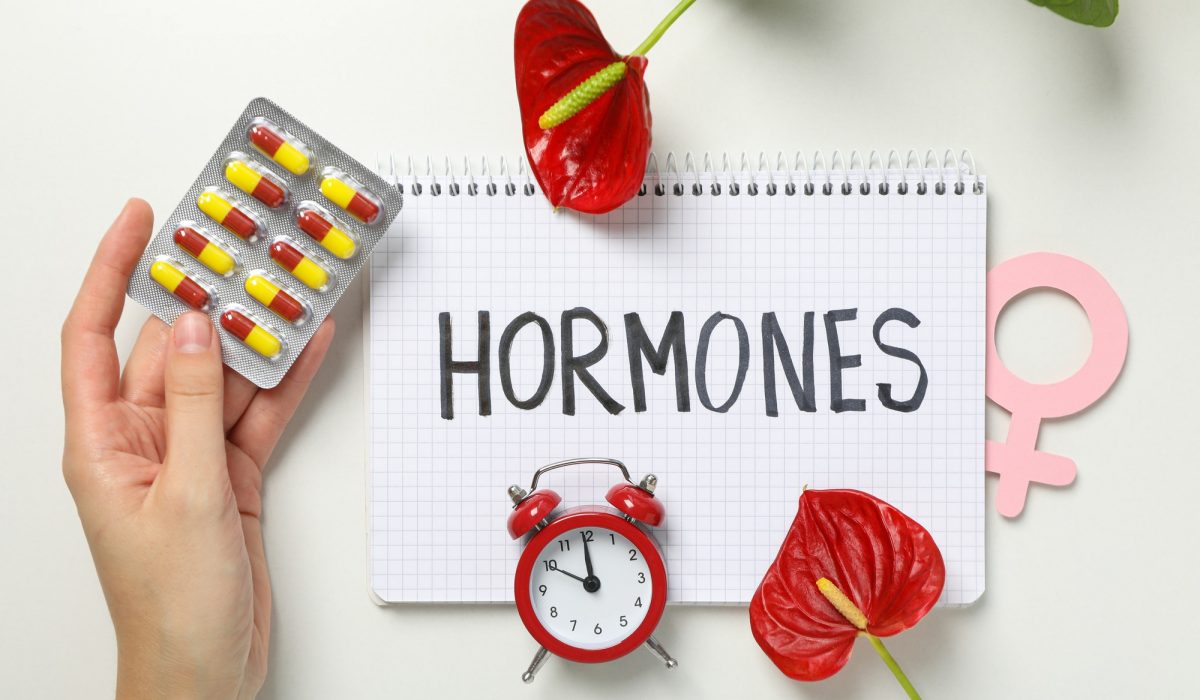Hormones play a crucial role in regulating essential bodily functions, including metabolism, mood, energy levels, and reproductive health. When these chemical messengers are in balance, the body functions optimally. However, even minor imbalances can lead to significant health issues. Understanding the causes, symptoms, and solutions for hormonal imbalance is vital for maintaining overall well-being.
What is Hormonal Imbalance?
Hormonal imbalance occurs when there is too much or too little of a hormone in the bloodstream. Because hormones regulate various bodily functions, any disruption can affect everything from weight management and sleep to mental health and digestion.
Several endocrine glands, including the thyroid, adrenal glands, pancreas, and reproductive organs, produce hormones. When any of these glands fail to produce hormones in the correct amounts, it can result in a wide range of health conditions.
Common Causes of Hormonal Imbalance
Numerous factors contribute to hormonal fluctuations, including:
- Chronic Stress – Prolonged stress increases cortisol levels, which can interfere with thyroid function, blood sugar regulation, and reproductive hormones.
- Poor Diet and Nutrition – Nutrient deficiencies, particularly in iodine, magnesium, and vitamin D, can impair hormone production.
- Lack of Sleep – Sleep deprivation disrupts melatonin, cortisol, and insulin levels, leading to fatigue and metabolic issues.
- Sedentary Lifestyle – Insufficient physical activity can lead to insulin resistance and imbalanced testosterone and estrogen levels.
- Aging – Natural hormonal changes occur as part of aging, particularly in women (menopause) and men (andropause).
- Environmental Toxins – Endocrine-disrupting chemicals (EDCs) found in plastics, pesticides, and cosmetics can interfere with hormone function.
- Medical Conditions – Disorders such as polycystic ovary syndrome (PCOS), hypothyroidism, hyperthyroidism, and diabetes can cause severe hormonal disruptions.
Signs and Symptoms of Hormonal Imbalance
The symptoms of hormonal imbalance vary depending on the specific hormones involved. Some of the most common indicators include:
1. Fatigue and Low Energy
Persistent fatigue that does not improve with rest may indicate an underactive thyroid (hypothyroidism) or adrenal dysfunction.
2. Unexplained Weight Changes
- Weight gain: Insulin resistance, hypothyroidism, and cortisol imbalance can lead to excessive weight gain.
- Weight loss: Hyperthyroidism and metabolic dysfunction can cause unexplained weight loss.
3. Mood Swings, Anxiety, and Depression
Fluctuating estrogen, progesterone, and cortisol levels impact neurotransmitters like serotonin and dopamine, leading to mood disorders.
4. Sleep Disturbances
Melatonin imbalances, adrenal dysfunction, and fluctuating cortisol levels can disrupt sleep patterns, causing insomnia or excessive drowsiness.
5. Skin and Hair Issues
- Acne and oily skin: High androgen levels, common in PCOS, can trigger excessive oil production.
- Hair thinning: Thyroid imbalances and low estrogen levels can cause hair loss.
6. Digestive Problems
Gut health and hormones are closely linked. Imbalances in cortisol or thyroid hormones can lead to bloating, constipation, or diarrhea.
7. Irregular Menstrual Cycles
For women, missed or irregular periods can indicate estrogen, progesterone, or testosterone imbalances, commonly seen in conditions like PCOS.
8. Reduced Libido
A decrease in testosterone, estrogen, or progesterone levels can significantly affect libido and reproductive health in both men and women.
Long-Term Risks of Hormonal Imbalance
If left untreated, hormonal imbalances can lead to serious health conditions, including:
- Diabetes – Chronic insulin resistance can lead to type 2 diabetes.
- Osteoporosis – Estrogen deficiency increases the risk of brittle bones.
- Heart Disease – High cortisol and insulin levels contribute to hypertension and cardiovascular problems.
- Infertility – Reproductive hormone imbalances can affect ovulation and sperm health.
- Chronic Inflammation – Prolonged hormonal imbalances may lead to autoimmune diseases.
How to Restore Hormonal Balance Naturally
While medical treatment may be necessary for certain conditions, lifestyle changes can significantly improve hormone regulation. Here are some practical steps:
1. Eat a Hormone-Balancing Diet
- Healthy fats (avocados, nuts, and olive oil) support hormone production.
- Protein-rich foods (eggs, fish, and legumes) help maintain muscle mass and regulate insulin.
- Fiber-rich foods (vegetables, fruits, and whole grains) support gut health and estrogen metabolism.
- Probiotic foods (yogurt, kefir, and fermented foods) promote digestive health, which is crucial for hormone regulation.
2. Exercise Regularly
- Strength training increases testosterone levels and insulin sensitivity.
- Cardio workouts help reduce cortisol levels and support heart health.
- Yoga and meditation reduce stress-related hormonal imbalances.
3. Prioritize Sleep
A consistent sleep schedule, minimizing blue light exposure before bed, and maintaining a relaxing nighttime routine can help regulate melatonin and cortisol levels.
4. Manage Stress Effectively
- Deep breathing exercises activate the parasympathetic nervous system and lower cortisol levels.
- Mindfulness and meditation reduce the negative effects of chronic stress.
- Spending time in nature lowers stress hormones naturally.
5. Avoid Endocrine Disruptors
- Reduce exposure to plastics (BPA) by using glass or stainless steel containers.
- Choose organic foods to minimize pesticide exposure.
- Avoid chemical-laden personal care products that contain parabens and phthalates.
6. Stay Hydrated
Proper hydration supports kidney function and helps flush out excess hormones.
7. Consider Supplements (Under Medical Guidance)
- Vitamin D supports immune function and hormone synthesis.
- Magnesium helps regulate cortisol and insulin.
- Omega-3 fatty acids reduce inflammation and improve hormone signaling.
When to Seek Medical Help
While lifestyle modifications can help restore balance, medical intervention is necessary in certain cases. Consult an endocrinologist if symptoms persist or worsen. Common diagnostic tests include:
- Thyroid Function Tests (TSH, T3, T4)
- Blood Sugar and Insulin Tests
- Cortisol and Adrenal Function Tests
- Sex Hormone Panel (Estrogen, Progesterone, Testosterone)
- DHEA and Growth Hormone Levels
Medical treatments may involve hormone replacement therapy, thyroid medications, or insulin-regulating drugs, depending on the condition.
Conclusion
Hormonal balance is essential for overall health and well-being. Recognizing the early signs of imbalance and taking proactive steps through diet, exercise, and stress management can significantly improve symptoms. If necessary, medical guidance can provide targeted solutions to restore equilibrium. With the right approach, achieving hormonal balance is possible, leading to improved energy, better mental health, and overall vitality.








